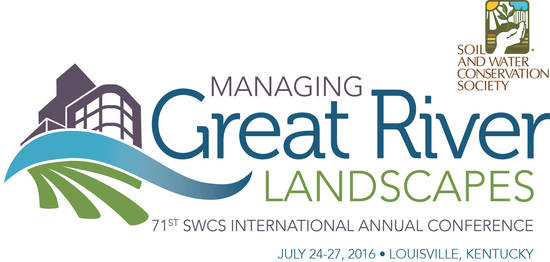In addition to the many breakout presentations already scheduled at the Iowa Water Conference, we’ll also offer a venue for recent water research to be presented. The following eight presentations have been scheduled:
Wednesday, March 23
Plans to Make Satellite Soil Moisture Work in Iowa
Brian Hornbuckle, Iowa State University Department of Agronomy
New satellites are producing maps of current soil moisture conditions. There are problems, however. A NASA-led field experiment will be conducted in Central Iowa this coming summer to address these issues. We will describe the experiment plan.
Effects of Some Phosphorus and Soil Conservation Management Practices on Dissolved and Total Phosphorus Loss with Surface Runoff
Antonio Mallarino & Mazaq U. Har, Iowa State University Department of Agronomy
Efforts are being developed at federal, state, and private levels to reduce the impact of agricultural practices on phosphorus (P) loss from fields and water quality impairment. This presentation will share results of recent and ongoing Iowa research that has been looking at how management practices such as the P rate and source as well as other conservation practices impact the amount and proportion of dissolved and particulate P loss with surface runoff.
Understanding the Diversity in Nutrient Management Practice Use in Midwestern Agriculture
Hanna Bates, Prairie Rivers of Iowa
Social science studies have shown that information access and social networks can affect nutrient management practice adoption. In this presentation, we ask: What is the relationship between different aspects of farmers’ social networks and the adoption of diverse nutrient management practices? Using 2012 Rural Life Farm Poll data, this presentation attempts to answer that question and explore implications for outreach and technical support strategies to farmers.
How Efficiently do Corn- and Soybean-based Cropping Systems use Water? A Systems Modeling Analysis
Ranae Dietzel, Iowa State University Department of Agronomy
Agricultural systems are being challenged to decrease water use and increase production while climate becomes more variable and the world’s population grows. This work looked at systems-level definition of water use efficiency that addresses both production and environmental quality goals through incorporating all major system water losses. It provides a framework to concurrently evaluate production and environmental performance of cropping systems.
Thursday, March 24
Getting Into Soil and Water Virtually with PEWI
Lisa Schulte Moore, Iowa State University Natural Resource Ecology and Management
Soil and water conservation are top priorities for Iowans, but we are challenged in how to achieve it. Trying new things is costly, which stymies creativity. This presentation discusses an online tool, PEW, developed to help overcome this hurdle.
Comparing the water-use and water-use-efficiency of biomass sorghum and maize in the rain-fed, Midwest, US
Matt Roby, Iowa State University Department of Agronomy
Climate variability and a projected increase in demand for non-grain ethanol feedstock may necessitate expanding the production of more water-use-efficient and less drought sensitive crops for biofuel applications in the Midwest, US. This research highlights the importance of understanding the potential effects of expanding biomass sorghum production on the hydrologic cycle of the Midwestern US.
Seasonal forecasting of discharge for the Raccoon River at Van Meter, Iowa
Gabriele Villarini, University of Iowa IIHR-Hydroscience and Engineering
The state of Iowa is regularly afflicted by severe natural hazards such as the 2008/2013 floods and the 2012 drought. To improve preparedness for these catastrophic events and allow Iowans to make more informed decisions about the most suitable water management strategies, we have developed a framework for medium to long range probabilistic seasonal streamflow forecasting for the Raccoon River at Van Meter, a 8900-km2 catchment located in central-western Iowa.
Assessment of Flood Mitigation Strategies for the City of Kalona, Iowa
David Koser, University of Iowa IIHR-Hydroscience and Engineering
In order to reduce flooding, communitites often try to control runoff with a storm sewer network, detention basins, low impact developments, and upstream storage to reduce stream overflow. A couple 1D/2D hydraulic model using XPSWMM was created for the town of Kalona, IA, to test different strategies for flood reduction.

